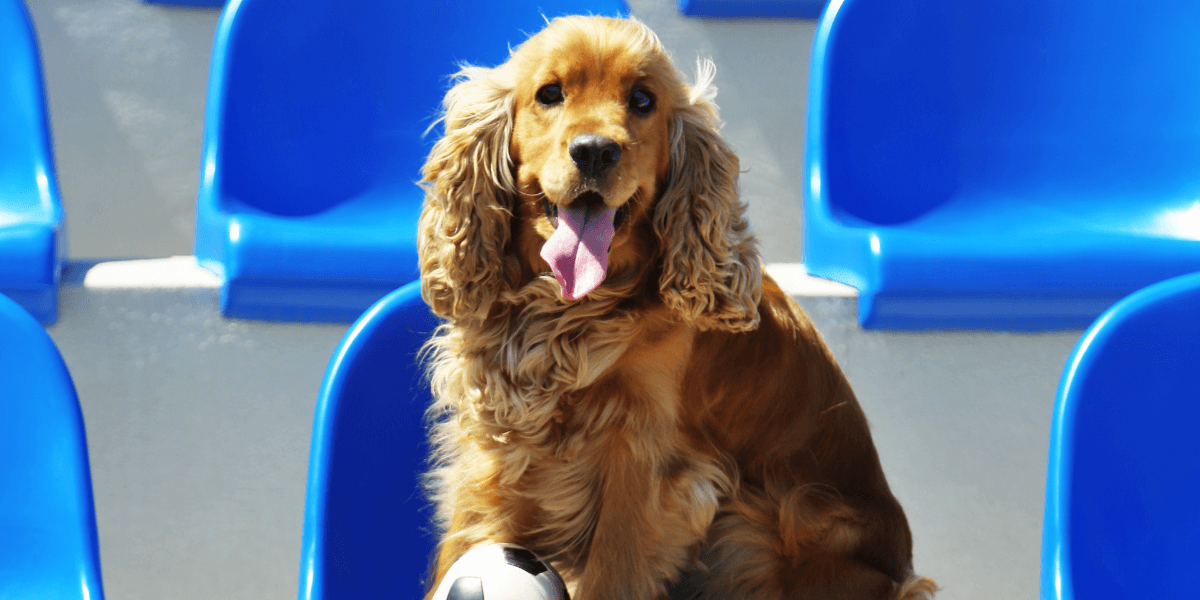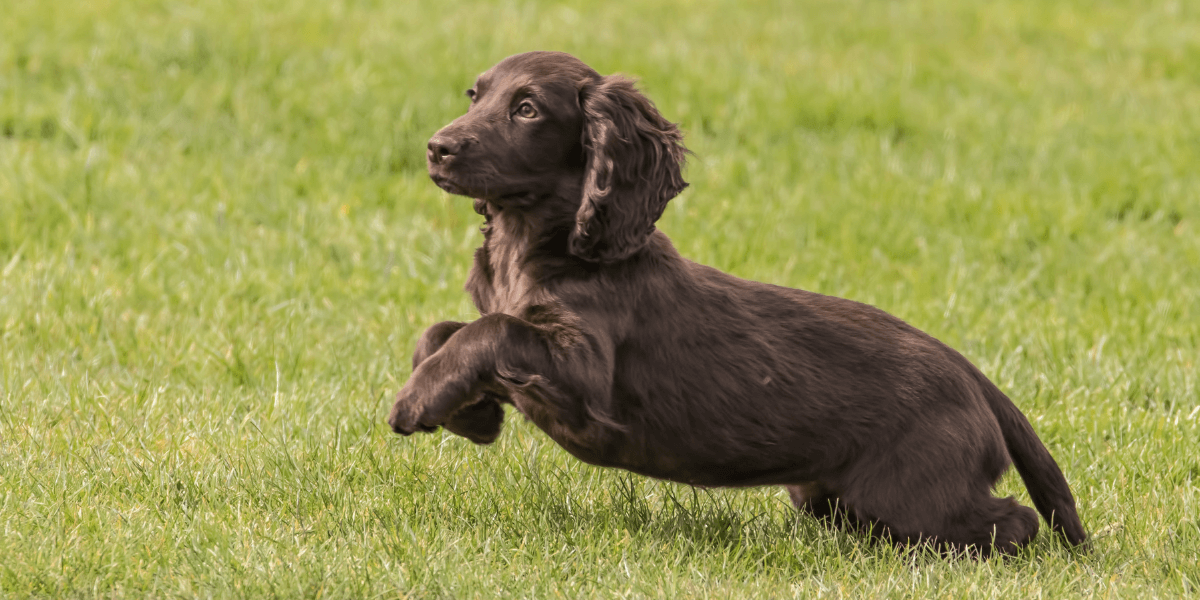Introduction
The English Cocker Spaniel temperament is known for being affectionate and friendly.
- This breed is highly social and enjoys being around people and other pets
- Understanding their temperament helps in providing the best care and training
- They are energetic and require regular exercise to stay healthy and happy
- Their intelligence makes them relatively easy to train but require consistent methods
- Knowing their temperament helps build a strong, positive relationship with your dog
1. General Characteristics

Understanding the general temperament traits of the English Cocker Spaniel is crucial.
- Friendly: They are known for their cheerful and warm nature
- Affectionate: They enjoy snuggling and being close to their family members
- Playful: Their high energy means they love interactive playtime
- Intelligent: They quickly learn commands and tricks with proper training
- Social: They are comfortable around people and other pets
- Curious: Their inquisitiveness drives them to explore their surroundings
- Loyal: They form strong bonds with their families and are protective
2. Behavior with Children

Knowing the English Cocker Spaniel temperament with children is key for families.
- Gentle: They are generally gentle and patient with kids
- Playful: They enjoy playing games with children and are energetic partners
- Protective: They may show protective behavior towards their young family members
- Tolerant: They tolerate a certain amount of roughhousing but should be supervised
- Affectionate: They often seek out children for cuddles and companionship
- Social: They thrive in a household where they receive attention from all family members
- Trainable: They can be trained to interact appropriately with children
3. Interaction with Other Pets

How English Cocker Spaniels behave around other pets can impact household harmony.
- Friendly: They typically get along well with other dogs and animals
- Playful: They enjoy engaging in play with fellow pets
- Curious: They may investigate new pets but usually do so in a friendly manner
- Social: They are generally good with pets if introduced properly
- Adaptable: They can adjust to living with other pets if socialized early
- Assertive: They may sometimes display dominance but usually settle into a friendly role
- Tolerant: They are usually tolerant of other animals' quirks and habits
4. Exercise Needs

Meeting the exercise needs of an English Cocker Spaniel is crucial for their well-being.
- Active: They require regular physical activity to stay healthy
- Playful: They enjoy games like fetch and running in open spaces
- Energetic: Daily walks and play sessions help manage their high energy levels
- Engaging: They benefit from interactive toys and activities to stimulate them
- Social: Group activities with other dogs can also be beneficial
- Varied: They enjoy a mix of activities to keep them mentally and physically engaged
- Routine: Consistent exercise routines help maintain their overall health
Ensure your English Cocker Spaniel's health by learning about hip dysplasia prevention and management.
5. Training and Socialization

Effective training and socialization are key to a well-adjusted English Cocker Spaniel.
- Responsive: They are generally responsive to positive reinforcement training
- Intelligent: Their intelligence aids in learning new commands quickly
- Socialized: Early socialization helps them adjust to various environments and situations
- Patient: They respond well to patient and consistent training methods
- Reward-Based: Using treats and praise can enhance their learning experience
- Adaptable: They can adapt to different training techniques if introduced gradually
- Engaged: Keeping training sessions short and engaging prevents boredom
6. Grooming Requirements

Regular grooming suits the English Cocker Spaniel temperament and keeps them healthy.
- Frequent Brushing: Their long coat needs regular brushing to prevent matting
- Bathing: They should be bathed as needed, but not too frequently to avoid skin issues
- Ear Care: Their floppy ears need regular cleaning to prevent infections
- Nail Trimming: Regular nail trims are essential to prevent overgrowth and discomfort
- Eye Care: Their eyes should be checked regularly for any signs of irritation
- Professional Grooming: Periodic professional grooming can help manage their coat
- Checkups: Grooming provides a chance to spot and address health issues
Master grooming your English Cocker Spaniel with these expert tips to keep your pup looking their best.
7. Common Behavioral Issues

Being aware of potential behavioral issues helps in managing them effectively.
- Separation Anxiety: They may become anxious if left alone for long periods
- Barking: They can be vocal, so training is needed to manage excessive barking
- Digging: Their curiosity can lead to digging, especially if not adequately exercised
- Chewing: They may chew on household items if bored or anxious
- Overexcitement: They can become overly excited, especially during playtime
- Stubbornness: They might exhibit stubborn behavior, requiring patience and consistency
- Jumping: They may jump on people as a sign of excitement or affection
Address common behavioral issues in your English Cocker Spaniel with these effective training tips.
FAQs
1. What is the ideal living environment for an English Cocker Spaniel?
- They thrive in a home with a yard and enough space to exercise and play
2. How often should I exercise my English Cocker Spaniel?
- They need at least 30-60 minutes of exercise daily, including walks and playtime
3. How does English Cocker Spaniel temperament impact their behavior with other dogs?
- They generally get along well with other dogs if socialized properly
4. How much grooming do English Cocker Spaniels require?
- They need frequent brushing and regular grooming to maintain their coat
5. Are English Cocker Spaniels easy to train?
- They are intelligent and responsive to training but benefit from consistent methods
6. What health issues are common in English Cocker Spaniels?
- They may experience ear infections, hip dysplasia, and eye issues
7. How do I manage my English Cocker Spaniel’s separation anxiety?
- Gradual desensitization and engaging toys can ease separation anxiety effectively
Conclusion
- English Cocker Spaniels are affectionate and friendly companions
- Their temperament makes them well-suited for families and individuals alike
- Proper exercise, grooming, and training are essential for their well-being
- Socialization from a young age helps them adapt well to various environments
- Understanding English Cocker Spaniel temperament helps in managing their behavior
- Adopting a proactive approach ensures a happy and healthy relationship with your dog
Like this guide on English Cocker Spaniel temperament? Share it or comment below!
References
For more information on the English Cocker Spaniel Temperament, check out:



